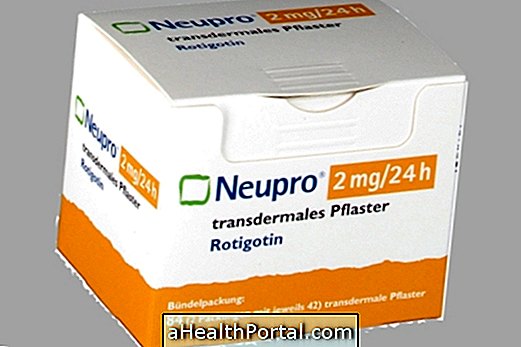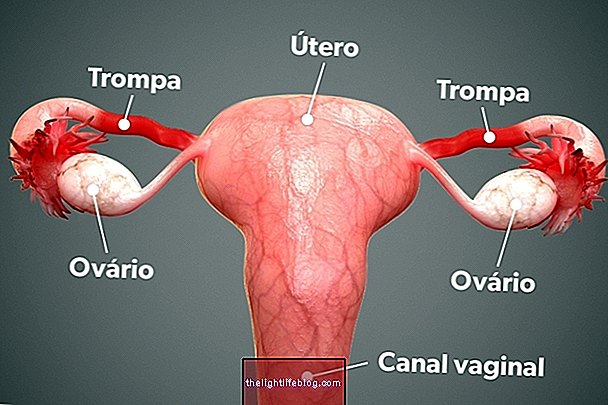Dimenhydrin is a medicine used to treat and prevent nausea and vomiting during pregnancy or during a trip, for example. In addition, it can also be used to treat or prevent dizziness and vertigo in case of labyrinthitis.
Dimenhydrin is marketed under the name Dramin in the form of tablets, oral solution or gelatin capsules of 25 or 50 mg, tablets and oral solution being indicated for adults and children above 2 years, gelatin capsules 25 mg for children between 6 and 12 years and 50 mg capsules for children and adults over 6 years. This medicine should only be used on a doctor's recommendation.

Price Range
The price of Dimenhydrin can vary from 0.50 to 41 reais, depending on the presentation of the medicine and the dosage.
Indications
Dimenhydrin is indicated for the prevention or treatment of nausea and vomiting in general, such as during pregnancy, movement sickness, as in the case of travel, caused by radiotherapy or after surgery.
In addition, Dimenhydrin can also be used in the prevention or treatment of dizziness and vertigo in case of labyrinthitis.
How to use
The mode of use of Dimenhydrinate varies according to the presentation of the medicine:
Tablets
- Adults and adolescents over 12 years: 1 tablet every 4 to 6 hours, before or during meals, up to a maximum dose of 400 mg or 4 tablets per day.
Oral solution
- Children between 2 and 6 years: 5 to 10 ml of solution every 6 to 8 hours, not exceeding 30 ml per day;
- Children between 6 and 12 years: 10 to 20 ml solution every 6 to 8 hours, not exceeding 60 ml per day;
- Adults and adolescents over 12 years: 20 to 40 ml of solution every 4 to 6 hours, not exceeding 160 ml per day.
Soft gelatinous capsules
- Children between 6 and 12 years: 1 to 2 capsules of 25 mg or 1 capsule of 50 mg every 6 to 8 hours, not exceeding 150 mg per day;
- Adults and adolescents over 12 years: 1 to 2 capsules of 50 mg every 4 to 6 hours, not exceeding 400 mg or 8 capsules per day.
In case of travel, Dimenhydrin should be administered at least half an hour in advance and the dose should be adjusted by the physician in case of liver failure.
Side effects
The main side effects of Dimenhydrin include sedation, drowsiness, headache, dry mouth, blurred vision, urinary retention, dizziness, insomnia and irritability.
Contraindications
Dimenhydrin is contraindicated in patients with allergy to the components of the formula and in patients with porphyria. In addition, Dramin tablets are contraindicated in children under 12 years of age, Dramin in oral solution is contraindicated for children under 2 years of age and Dramin in gelatin capsules for children under 6 years of age.
In addition, the use of Dimenhydrin with tranquilizers, sedatives and alcohol ingestion is contraindicated.
























